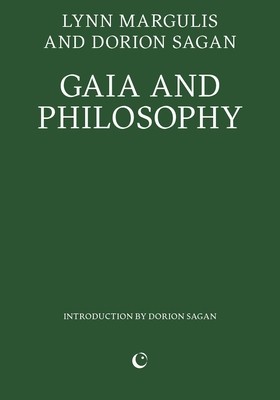
- We will send in 10–14 business days.
- Author: Lynn Margulis
- Publisher: Spiral House Editions
- ISBN-10: 1739371763
- ISBN-13: 9781739371760
- Format: 10.9 x 15.5 x 0.8 cm, minkšti viršeliai
- Language: English
- SAVE -10% with code: EXTRA
Reviews
Description
In the 1970s, microbiologist Lynn Margulis and atmospheric chemist James Lovelock developed the Gaia theory. Embracing the circular logic of life and engineering systems, the Gaia theory states that Earth is a self-regulating complex system in which life interacts with and eventually becomes its own environment. Gaia describes a living Earth: a body in the form of a planet. Fusing science, mathematics, philosophy, ecology and mythology, *Gaia and Philosophy*, with a new introduction by Dorion Sagan, challenges Western anthropocentrism to propose a symbiotic planet. In its striking philosophical conclusion, the revolutionary Gaia paradigm holds important implications not only for understanding life's past but for shaping its future.
- Author: Lynn Margulis
- Publisher: Spiral House Editions
- ISBN-10: 1739371763
- ISBN-13: 9781739371760
- Format: 10.9 x 15.5 x 0.8 cm, minkšti viršeliai
- Language: English English
In the 1970s, microbiologist Lynn Margulis and atmospheric chemist James Lovelock developed the Gaia theory. Embracing the circular logic of life and engineering systems, the Gaia theory states that Earth is a self-regulating complex system in which life interacts with and eventually becomes its own environment. Gaia describes a living Earth: a body in the form of a planet. Fusing science, mathematics, philosophy, ecology and mythology, *Gaia and Philosophy*, with a new introduction by Dorion Sagan, challenges Western anthropocentrism to propose a symbiotic planet. In its striking philosophical conclusion, the revolutionary Gaia paradigm holds important implications not only for understanding life's past but for shaping its future.


Reviews